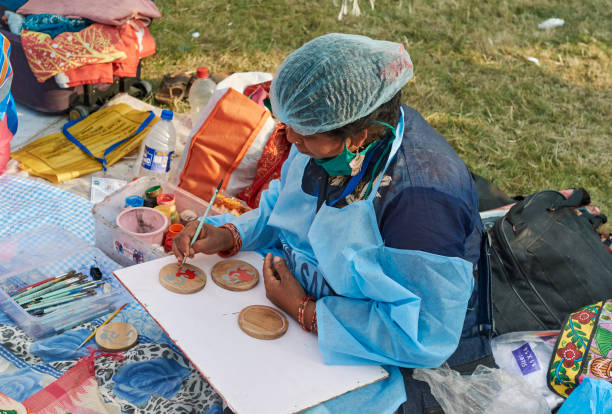Gender equality is not just a fundamental human right but a necessary foundation for a peaceful, prosperous, and sustainable world. However, achieving gender equality remains a significant challenge worldwide. In India, a country of rich diversity and culture, non-governmental organizations (NGOs) play a pivotal role in advancing gender equality. Their tireless efforts are guided by a set of principles and a vision to create a more inclusive society. This article delves into how NGOs in Noida, India are contributing to the achievement of gender equality, drawing insights from the 10 fundamental principles that guide their work.
Fundamental Principles that Guide their Work
1. Principle of Inclusivity
Inclusivity is at the core of NGOs’ efforts to achieve gender equality. These organizations work with women from all backgrounds, regardless of their age, religion, caste, or socioeconomic status. They ensure that no woman is left behind in the fight for gender equality.
2. Principle of Empowerment
Empowering women is a fundamental objective for Indian NGOs. Through various programs, they provide women with the skills, knowledge, and resources to make informed choices about their lives. This empowerment often includes economic independence, education, and access to healthcare.
3. Principle of Advocacy
NGOs advocate for women’s rights at all levels, from local communities to the national government. They work to influence policies and legislation that protect women’s rights, eradicate discrimination, and promote gender equality.
4. Principle of Education
Education is a powerful tool for promoting gender equality. NGOs focus on ensuring that girls and women have access to quality education. They establish schools, learning centers, and scholarship programs that provide educational opportunities for women.
5. Principle of Healthcare Access
Access to healthcare is vital for women’s well-being. NGOs organize health camps, raise awareness about health issues, and provide medical assistance to make healthcare accessible to women, particularly those in marginalized communities.
6. Principle of Economic Independence
Economic empowerment is a critical aspect of gender equality. NGOs run vocational training programs, offer microfinance services, and support women in starting their businesses. These initiatives enable women to become financially independent.
7. Principle of Safety and Protection
Ensuring the safety and protection of women is a primary concern. NGOs work tirelessly to combat domestic violence, human trafficking, and other forms of abuse. They provide safe spaces for women in need and offer legal support.
8. Principle of Encouraging Leadership
Women’s leadership is essential for gender equality. NGOs encourage women to take on leadership roles in their communities. They provide training and mentorship to help women become effective leaders and change-makers.
9. Principle of Raising Awareness
Raising awareness about gender equality and women’s rights is a key principle. NGOs use various strategies, including campaigns, workshops, and educational programs, to inform communities about these critical issues.
10. Principle of Community Engagement
Gender equality is a community effort. NGOs actively engage with local communities, encouraging them to support women’s rights and gender equality. They foster a sense of shared responsibility to create lasting change.
How NGOs in India Are Advancing Gender Equality
Education for All
One of the primary ways in which NGOs in India are advancing gender equality is through education. These organizations work to ensure that girls, as well as boys, have access to quality education. They establish schools and learning centers that provide an environment conducive to learning. Scholarship programs are initiated to support underprivileged girls in pursuing their education.
Women’s Empowerment
Empowering women is a central mission for Indian NGOs. They believe that women should have access to opportunities that enable them to become self-sufficient and confident. Through various vocational training programs, they equip women with skills such as tailoring, handicrafts, and small-scale entrepreneurship.
Economic Independence
Another crucial aspect of gender equality is economic independence. Indian NGOs are actively involved in helping women become economically self-reliant. Microfinance programs provide financial assistance to women for starting small businesses or expanding their existing ones. Such initiatives not only empower women but also contribute to the economic growth of communities.
Health and Well-being
Ensuring the health and well-being of women is of paramount importance. NGOs organize health camps that offer medical check-ups and services to women in remote and underserved areas. They also conduct awareness programs about reproductive health, maternal care, and nutrition. This work has a profound impact on reducing maternal mortality rates and improving women’s overall health.
Gender Equality in Leadership
NGOs are actively working to promote women’s leadership and participation in decision-making processes. They conduct leadership development programs and training sessions for women, preparing them to take on leadership roles in their communities and address gender-specific issues.
Ending Violence Against Women
One of the most challenging issues in the fight for gender equality is ending violence against women. NGOs are at the forefront of this battle, offering shelter and support to women who have experienced violence. They also engage in advocacy efforts to change social norms and create a safer environment for women.
Policy Advocacy
Indian NGOs engage with government agencies and policymakers to influence policies and legislation that affect women’s rights. They advocate for changes that will create a more inclusive and equitable society, free from gender-based discrimination.
Conclusion
Gender equality is not an isolated issue but a cornerstone for a just and prosperous society. NGOs in India play a vital role in advancing gender equality through their adherence to fundamental principles and their on-ground work. By focusing on education, empowerment, advocacy, and community engagement, these organizations are driving significant change.
As the efforts of these NGOs continue, India moves closer to a future where gender equality is not just an aspiration but a reality. It is a future where women and men have equal access to opportunities, where violence and discrimination based on gender are eliminated, and where communities thrive on the strength of diversity and inclusivity.





Comments